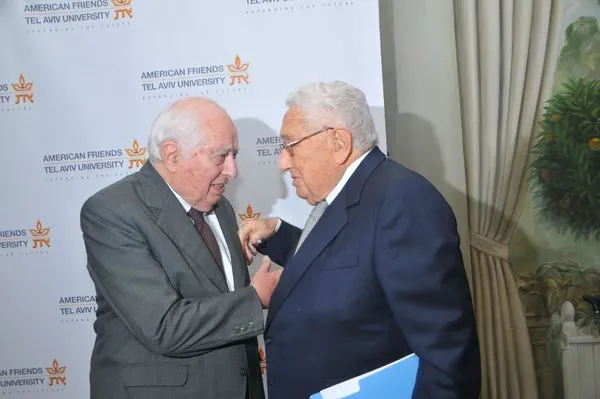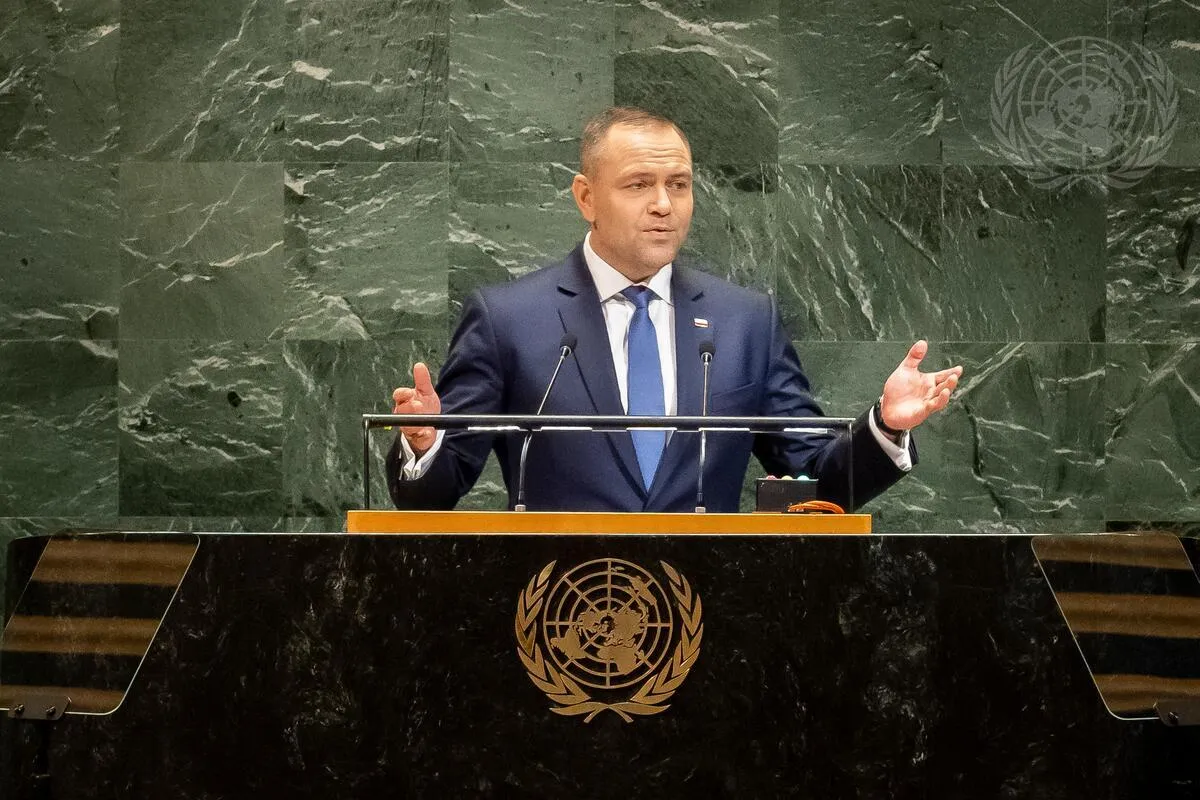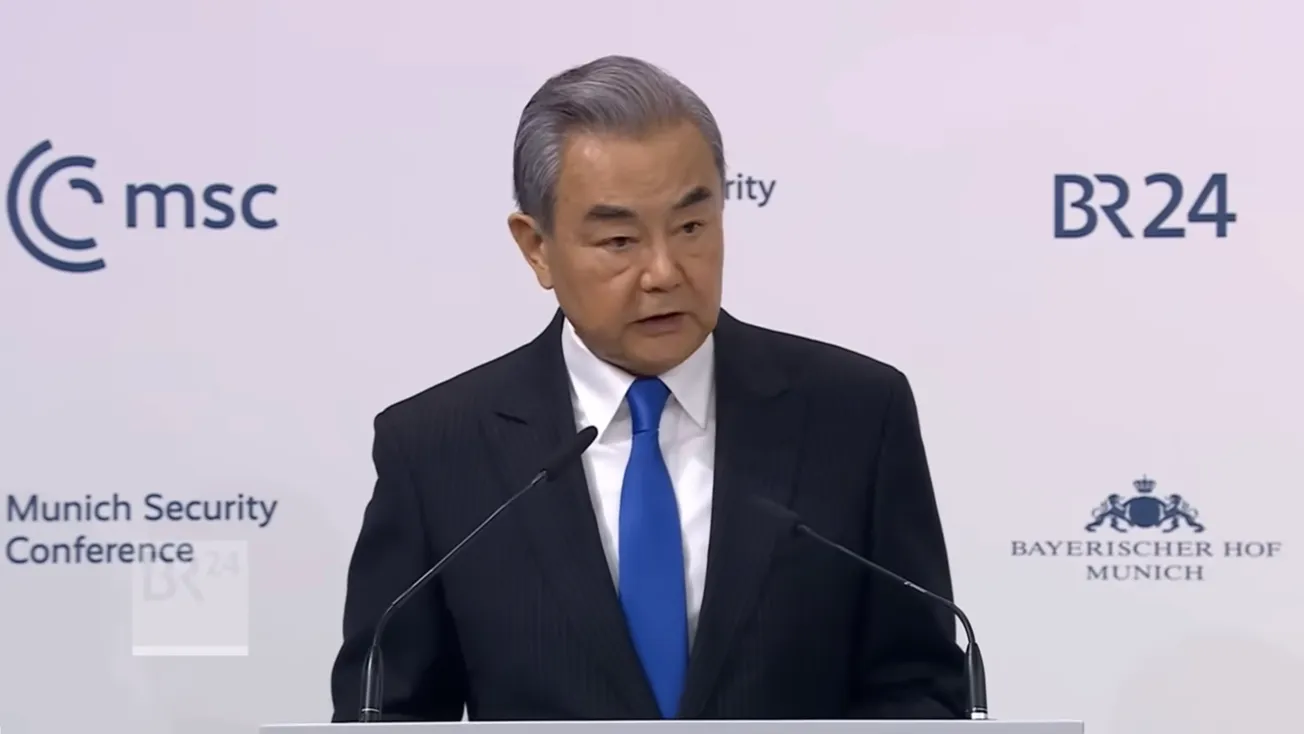Russian President Vladimir Putin met in the Kremlin on Oct. 25 with eight of Russia’s top religious leaders, representing the Christian, Muslim, Jewish, and Buddhist faiths. Putin denounced the terrorist attack on Israel by Hamas on Oct. 7, as well as the unconscionable Israeli response of destroying all of Gaza based on “the notorious principle of collective responsibility,” and delivered a very sharp warning to the entire world: “Further escalation of the [Israel-Palestine] crisis poses a risk of severe and highly dangerous and destructive consequences … [that] can spill far beyond the borders of the Middle East.” Putin then put his finger on the underlying cultural or civilizational issues at stake:
“We see attempts made by certain forces to … launch a wave of chaos and mutual hatred not only in the Middle East but far beyond…. In my view, these actions are clearly designed to sow instability around the world, to divide cultures, peoples and world religions, and to provoke a clash of civilizations.”
The “clash of civilizations” is popularly associated with Harvard University Professor Samuel Huntington, or sometimes with former National Security Advisor Zbigniew Brzezinski’s “Arc of Crisis” doctrine of provoking ethnic and religious warfare all around the then-Soviet Union, to isolate and dismember it. But the concept, as well as the phrase itself, was coined three years before Brzezinski-clone Huntington used it, by British intelligence agent and Middle East specialist Bernard Lewis. After World War II, Lewis served in the British Army’s Intelligence Corps and then in the Foreign Office, after which he taught for 25 years at the School of Oriental Studies, University of London. Only after that, in 1974, did he transfer to Princeton University in the United States.
The horror we now see unfolding in Southwest Asia is the Bernard Lewis Plan in action: the deliberate fostering of religious strife and bloodshed throughout the region, to bring out the most bestial in all targeted groups, on both sides of the divide.
How bestial?
Consider Israeli Prime Minister Benjamin Netanyahu’s remark in 2018: “The weak crumble, are slaughtered and are erased from history, while the strong, for good or ill, survive.” Netanyahu is probably not literate enough to know it, but he was merely repeating the infamous dictum of British liberal philosopher Thomas Hobbes in his 1651 Leviathan: “The natural state of men, before they entered into society, was a mere war, and that not simply, but a war of all men against all men.”
Or listen to retired IDF Lt. Col. Dr. Mordechai Kedar, who served for 25 years in Israeli military intelligence, who told a Sputnik interviewer that, although he could not confirm media reports that the IDF was weighing plans to flood the Hamas tunnels in Gaza, this would in fact be cheaper and more effective than dropping lots of bombs. “It will not be so hard to make water from the sea stream into the city [Gaza]. Once the city is covered with water … all the tunnels will be flooded, and whoever is in these tunnels will have to swim out or be buried there forever.… I think we don’t have to put so much attention to these questions” of harming civilians, Kedar stated.
Or hear the anguished voice of Dr. Muhammed Kandeel, who works at the Nasser Hospital in Khan Younis in southern Gaza. Amid the inferno of 1.4 million displaced Palestinians—out of 2.3 million living in Gaza—over 7,000 deaths to date, and the collapsing health system which makes saving lives nearly impossible, Kandeel told CBS News: “We feel we are not a part of the human community. If we are sub-human, just tell us, so we can take action by ourselves.”
One is reminded of the pained opening sentence of Nicholas of Cusa’s 1453 “De Pace Fidei” (“On the Peace of Faith”), a ground-breaking philosophical study of the principles guiding the coming Golden Renaissance:
“News of the atrocities, which have recently been perpetrated by the Turkish king in Constantinople and have now been divulged, has so inflamed a man who once saw that region, with zeal for God, that amongst many sighs he asked the Creator of all things if in His kindness He might moderate the persecution, which raged more than usual on account of diverse religious rites.”
But we also recall Cusa’s very next sentence:
“Then it occurred that after several days—indeed on account of lengthy, continuous meditation—a vision was manifested to the zealous man, from which he concluded that it would be possible, through the experience of a few wise men who are well acquainted with all the diverse practices which are observed in religions across the world, to find a unique and propitious concordance, and through this to constitute a perpetual peace in religion upon the appropriate and true course.”
Helga Zepp-LaRouche—the founder of the Schiller Institute, and a leading Cusa scholar—has insisted that Cusa’s method of “the coincidence of opposites” is the only pathway out of the current civilizational crisis. In her Oct. 25 weekly Dialogue webcast, she concluded with the following call to arms:
“We are in extremely challenging times, and there are many people who want to retreat into private life, and say `Oh, I don’t want to go there, this is too terrible. It’s causing me sleepless nights, so I don’t want to know anything about it.’ I think that’s the worst…. If you are aware of a great evil, and you are not trying your very best to resolve it, it does something to you—to your soul, to your mind, the way how you are as a person. And I think we in the West, at least, in any case, are faced with an unbelievable brutalization of society, a cultural decay. And if we tolerate what is going on right now, it will put us one step further into a catastrophe from which we may not recover.”
Zepp-LaRouche continued: “What we need to do, instead, is anything like Classical music: We want to have lots of Classical concerts. If you want to organize prayers, that’s also very good: anything which uplifts the soul and makes people better people. Because civilization has never been so faced with the question of where it will go, a question how moral are people, how much they care for humanity. And right now, the question of the aesthetic education of trying to be better people than you were yesterday, is really the question of unleashing a force of humanity which is the only thing that can conquer the military-industrial complex. That may sound like a utopian idea, but I’m absolutely convinced that the beauty of the human soul is stronger than the evil of military profits and warmongering.
“But you have to act on the basis of that insight.”









